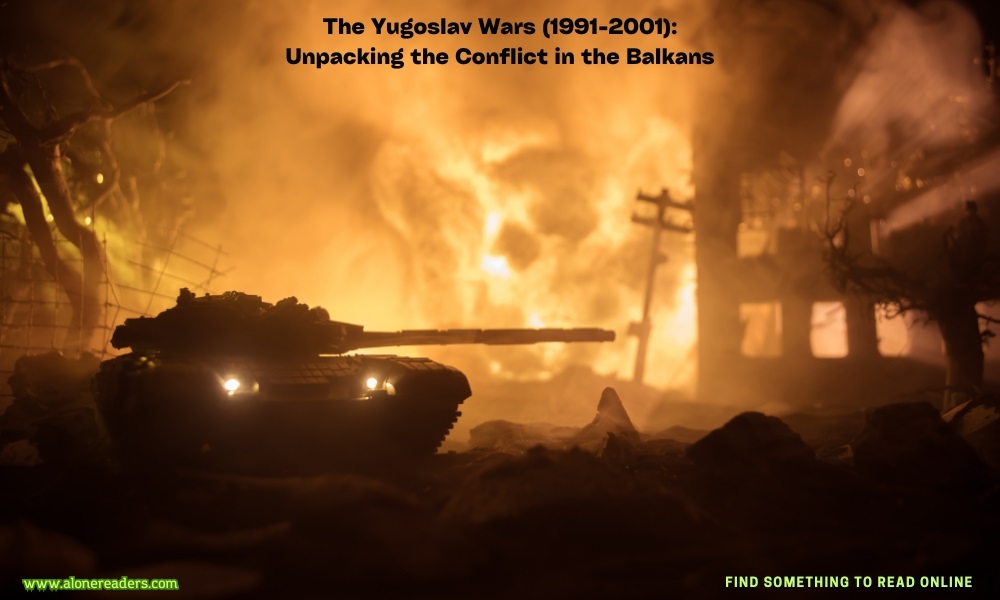
The collapse of Yugoslavia in the early 1990s marked the beginning of a series of conflicts that would reshape the geopolitical landscape of Southeast Europe. Spanning from 1991 until 2001, the Yugoslav Wars were a complex conflagration, rooted in ethnic tensions and fueled by the ambitions of newly emerging nationalisms. This period of intense strife not only devastated the region but also posed significant challenges for international diplomacy and peacekeeping.
The origins of the Yugoslav Wars can be traced back to the weakening of the central government in Belgrade and the rise of nationalist sentiments among the six republics that constituted the Socialist Federal Republic of Yugoslavia: Bosnia and Herzegovina, Croatia, Macedonia, Montenegro, Serbia, and Slovenia. The death of Josip Broz Tito in 1980, who had been the unifying force in the multi-ethnic state, set the stage for a power vacuum that exacerbated ethnic divisions and stirred secessionist aspirations.
In June 1991, Slovenia declared independence after a brief 10-day conflict with the Yugoslav People's Army (JNA), largely composed of Serbs and controlled by Serbia. This relatively short and less destructive conflict starkly contrasted with the subsequent wars in Croatia and Bosnia. Croatia declared its independence simultaneously with Slovenia, but unlike Slovenia, it faced significant resistance from ethnic Serbs within its borders, leading to a protracted and brutal conflict that lasted until 1995. The international community was slow to react, initially maintaining an arms embargo that many critics argue disproportionately affected the Croat and later Bosniak forces.
The Bosnian War (1992-1995) was the most horrific of these conflicts, marked by ethnic cleansing, genocidal acts, and a level of brutality unseen in Europe since World War II. The war erupted following Bosnia and Herzegovina's declaration of independence, which was immediately followed by the occupation of almost 70% of the country by Serb forces. The ensuing war saw the Bosniak (Muslim), Croat, and Serb factions vying for control, culminating in atrocities such as the Srebrenica massacre, where an estimated 8,000 Bosniak men and boys were killed in July 1995. The international community's response, or lack thereof, particularly by the United Nations and the European Union, drew significant criticism.
The Dayton Peace Agreement, brokered in 1995 by the United States, finally brought a tenuous peace to Bosnia and Herzegovina. The agreement created a complex political structure to accommodate the diverse ethnic groups within Bosnia, but it also entrenched ethnic divisions, setting the stage for future political instability. The war in Croatia similarly concluded in 1995 following Operation Storm, during which Croatian forces reclaimed territories held by Serbs, resulting in the displacement of a large number of Serbian civilians.
The Kosovo conflict in 1998-1999 presented yet another layer of the Yugoslav Wars, involving the ethnic Albanians in Kosovo fighting for independence from Serbia. The conflict led to a humanitarian crisis and eventually prompted NATO to intervene militarily against Yugoslavia, marking a significant shift in the approach of the international community towards the Balkan conflicts. The NATO bombing of Yugoslavia in 1999 and the subsequent deployment of UN peacekeeping forces highlighted the complexity of military interventions and their contentious outcomes.
The Yugoslav Wars finally concluded with the insurgency in Southern Serbia and the conflict in the former Yugoslav Republic of Macedonia in 2001, both of which ended with relatively less violence and quicker resolutions compared to the earlier wars. The dissolution of Yugoslavia was completed with Montenegro and then Kosovo declaring independence from the State Union of Serbia and Montenegro in 2006 and 2008, respectively.
The aftermath of the Yugoslav Wars is still felt today in the political and social landscape of the Balkans. The wars not only changed the borders but also left deep scars and unresolved issues, including refugee crises, ethnic hostilities, and economic devastation. International efforts to promote reconciliation and development have been met with mixed results, as nationalist sentiments still simmer beneath the surface in some areas.
In sum, the Yugoslav Wars were a seminal period in modern European history, illustrating the dangers of unchecked nationalism and ethnic divisions. The lessons learned from these conflicts continue to inform international responses to similar crises, highlighting the importance of timely and decisive intervention in preventing ethnic conflicts and ensuring lasting peace.